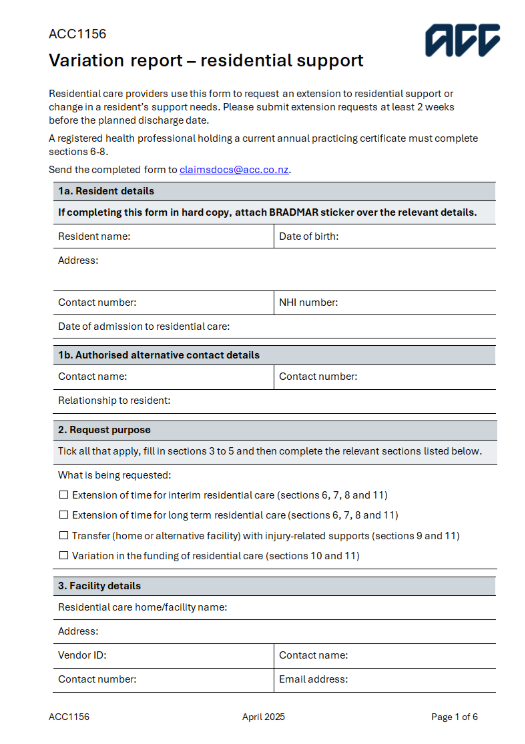Short term care
Short term care or carer relief is for clients expected to require support for less than six months.
Who does short term care include?
Short term care can include:
- Carer relief or respite care – support to enable a client’s usual caregivers a break
- Temporary care - for example a temporary change in health or environmental circumstances requiring residential support
Short term care also includes interim care. For more information on this service, refer to interim care.
Referral
We will refer clients requiring short term care, following a request from a medical/rehabilitation provider or the client and their whānau.
Working directly with the client and their whānau, we will ensure they are supported to identify a suitable facility.
A suitable facility is chosen based on:
- The level of support and rehabilitation required by the client
- The preferences of the client and their whānau
- The client's cultural, social, emotional, intellectual, and spiritual needs
- The ability of the client's whānau to visit and support the client
- Whether the facility is appropriate for the client's age
In cases where it is not possible to find a facility that meets all these requirements, some of these factors may be prioritised over others.
Funding of care
We will work with clients on an individual basis to determine an appropriate level of funding for their support, considering their injury-related needs and other health factors, including the level of support they required prior to their injury.
In cases where the need for support arises from a combination of factors, the daily cost of residential care may be split between ACC and other funding sources, such as the Ministry of Health or contributions from the client.
We will agree the initial approved duration of support up front ahead of referral into the service.
Monitoring of needs or changes in requirements
The residential support services provider will complete a care plan.
Each care plan is tailored to the client's needs and documents the level of care for managing the client's condition, the support provided for safe independence, and ways to promote health and wellbeing, including spiritual, emotional, and cultural needs.
It will also include the discharge date and destination, and the frequency and type of rehabilitation required to ensure the client does not decondition during their stay.
Care plans are regularly updated to reflect the client's changing needs (at least every six months).
In the event the client is not expected to be able to discharge within the time required, or their level of support needs changes, the residential facility must complete an ACC1156 to notify us of these changes. This form is used to request a higher or lower level of funding or to request an extension in support.
Upon receipt of the form, we will review the request, confirm if the change or extension in the level of care can be approved, or request further information if needed.

ACC1156 variation report - residential support
This form is used to request funding for a higher or lower level of care or to request an extension in support.
Please note, a registered health professional needs to complete sections 6-8 of the form.